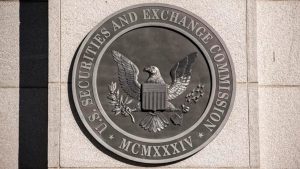11 South Korean Exchanges Closing Amid Regulator Probe

A number of middleweight cryptocurrency exchanges in South Korea will close their doors as the country’s financial regulator launches an inspection into suspected illegal activities.
South Korea’s Financial Services Commission (FSC) will reportedly close a total of 11 local exchanges. All of which have used fraudulent accounts, according to reports.
Authorities and reports had not disclosed the suspected exchanges at time of press. However, reports indicate that the exchanges in question will be unable to gain approval from the FSC for operation in future.
The FSC’s probe comes on the heels of recent closures of South Korean crypto exchanges. Darlbit, for one, reportedly went out of business following a suspension of withdrawal and deposit services.
Meanwhile, BitSonic announced a temporary cessation of operations while it renews its service systems. Amid the renewal, the exchange also said it would acquire an information security management system (ISMS). A set of procedures reportedly required for exchanges to run legally in South Korea.
Abiding by regulations
However, the FSC’s investigation does not apply to the front-runner exchanges in the country. According to reports, the probe did not affect Upbit or Bithumb, two of South Korea’s biggest exchanges. This was due to the fact that both exchanges offer real-name account registration to their customers. Such registration has been mandatory in South Korea for anti-fraud and money laundering reasons since 2018.
Last month, Bithumb also enforced a ban on its employees investing in or trading in crypto. The company announced its new policy on July 2. It was not only made in line with some of the FSC’s recent decisions to restrict the South Korean crypto market, but also in a bid to strengthen internal regulations.
Reports also indicate that Bithumb would implement a system involving continuous self-audits and internal reporting.
South Korea’s crypto crackdown
More recently, the South Korean authorities have turned their attentions to tax evasion within the crypto space. Reports recently revealed that the government were considering amending tax codes to allow financial authorities to confiscate the crypto holdings of any suspected tax evaders. Officials in South Korea seized $47 million worth of crypto due to unpaid taxes back in June.
Local exchanges in South Korea are not the only ones facing the regulators’ clampdown. All foreign exchanges must register themselves with the Korea Financial Intelligence Unit (KFIU) by September 24. Failing to do so will reportedly open them up to legal action and potential closure.
Disclaimer
All the information contained on our website is published in good faith and for general information purposes only. Any action the reader takes upon the information found on our website is strictly at their own risk.














